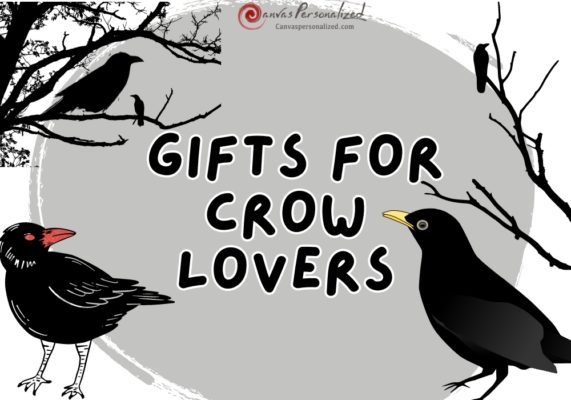Bird owners (or anybody interested in birds) would do well to familiarise themselves with the bird in shock symptoms; doing so might save your pet’s life in a dire emergency. When a bird suffers an injury or extreme stress, it may go into shock, which can be lethal if not treated quickly. Weakness, drowsiness, pallor or blueness of the skin, panting, and rapid heart rate are some signs of shock in birds. Getting your bird to the doctor as soon as possible is crucial if you suspect it is in shock. This article by Canvas Personalized explains the symptoms, causes, and therapies for bird shock. We’re confident it’ll be helpful to you.
When A bird Is Shocked, What Causes It?
To begin, it is essential to have a good understanding of what the term “shock” means. “Shock is a generic physiologic reaction to any circumstance that decreases oxygen and food supply to cells or interferes with cellular metabolism,” states the Merck Veterinary Manual. “Several different conditions can cause shock.” In a nutshell, this indicates that when a bird is in shock, its body is not receiving the oxygen and nutrition it needs to perform correctly.
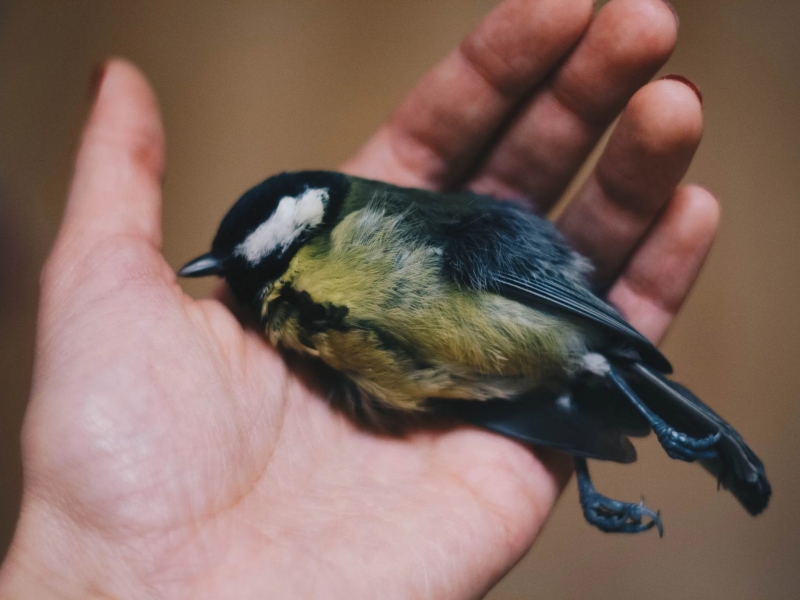
Now that we all understand what it means to be “shocked,” let’s look at some factors that might contribute to this issue. Some of the more frequent causes are:
- Burns
- Loss of blood as a result of an injury
- Heat stroke
- Hypothermia
- Dehydration
- Starvation
- Reactions to poisons or compounds that are toxic
The bodies of birds and people are very different. This makes them much weaker and more vulnerable to injury when they get a shock. Awareness of a bird in shock symptoms is crucial since it only takes a small amount of stress for a bird to enter this life-threatening state.
What Is The Bird In Shock Symptoms?
When our feathered friends are in shock, they may exhibit various the bird in shock symptoms. Remember that some birds exhibit no symptoms, while others exhibit various signs. You should also remember that birds are quite good at concealing their illnesses. It may be too late if your bird shows signs of serious illness. This is why you must understand your bird and its habits. We will now discuss some of the most prevalent indications and symptoms of shock in birds, which are as follows:
1. Bleeding with wounds
This is the easiest way to tell when a bird is shocked. When a bird is hurt and starts to bleed, it is shocking and could be fatal.
The bird needs to be rescued and brought to a secure location immediately so it may be treated. In addition, a bleeding bird may have shattered wings. So, it might not be able to fly for a very long time. The best thing to do would be to treat the bird until it gets better and can fly again.
2. Body parts hurt, and eyes swollen
Shock can cause serious injury to a bird’s body, possibly in more than one place. Injuries to the pet bird are common if it is attacked by a larger bird or a predatory animal such as a cat. Once domesticated, a bird loses many defenses that would normally protect it from predators in the wild. If a bird is shocked or hurt, you might see the following:
- Legs that are dangling without any control.
- Instead of folding, the wings will be hanging.
- The bird may fly in a circling pattern.
Also, it would be best if you noticed that its eyes were closed. Most of the time, the eyes of a bird that has been shocked will be swollen or squinted. You might even be able to see crust on the eyes.
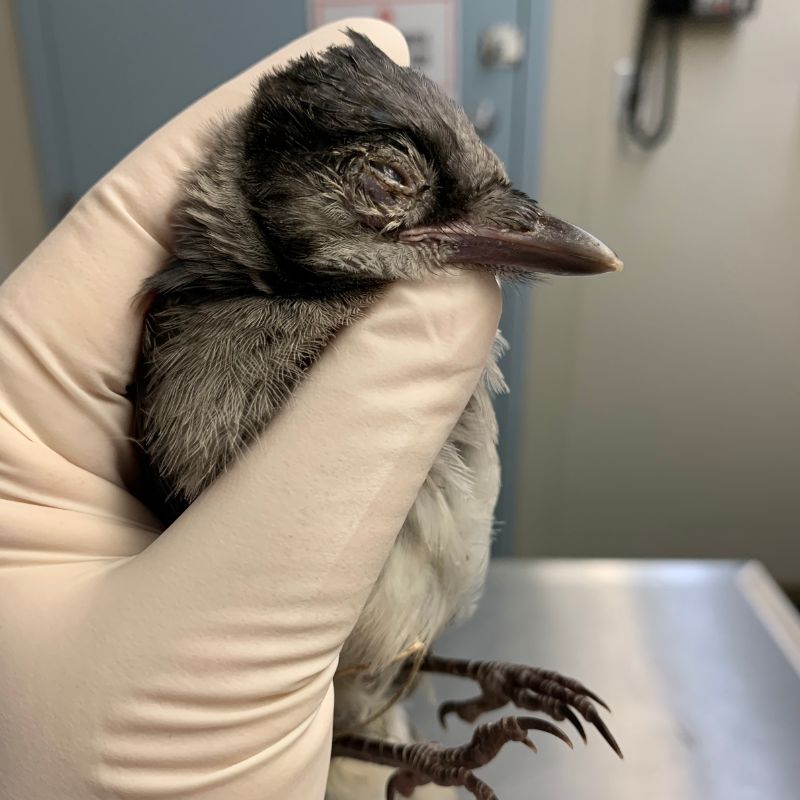
3. Does not fly away when you get close to it
When you get too close to a shocked bird, it won’t move or make any attempts to fly away. There is no doubt that the bird has suffered a serious shock. It usually happens when predators, such as an eagle, a cat, or a dog, attack it. Cats are notorious for killing birds kept as pets. If you have birds as pets, please exercise caution. They can still be shocked inside their cage if a cat comes too close. Further, if a bird cannot fly away despite your best efforts, it is likely hurt. You need to get it to safety and then begin treatment.
4. Their feathers are fluffed
When a bird is scared, it tries to scare away its enemies. So, it will fluff up its feathers to make itself look bigger. The good news is that a fluffed bird indicates it is in shock but has recovered greatly from its miserable condition.

5. Breathing slowly or quickly
A bird that has been shocked may change its respiratory pattern. When under stress, some animal species’ breathing rates increase, whereas others decrease. Because of this, you should instantly check the bird’s respiratory rate if you ever catch one lying on the ground.
The emergency breathing procedure should be used if your bird is breathing too slowly. For it to live, you’ll need to use your mouth to force air into its lungs. It’s like how you save a person who is drowning.
6. Totally motionless
When shocked, birds will remain motionless on the ground. It won’t move and even seems dead. So, you should be careful when you see birds lying still on the ground. Also, their wings might have been hurt, making it hard for them to move.
7. Can’t fly
When a bird is shocked, it often has trouble taking off. It will expand its wings and try to fly, but it won’t be able to. When a bird is stunned, it takes a while for the brain to regain its composure. Hence, it will be unable to master its wings and flying abilities. For this reason, the bird will be unable to fly no matter how hard it tries.
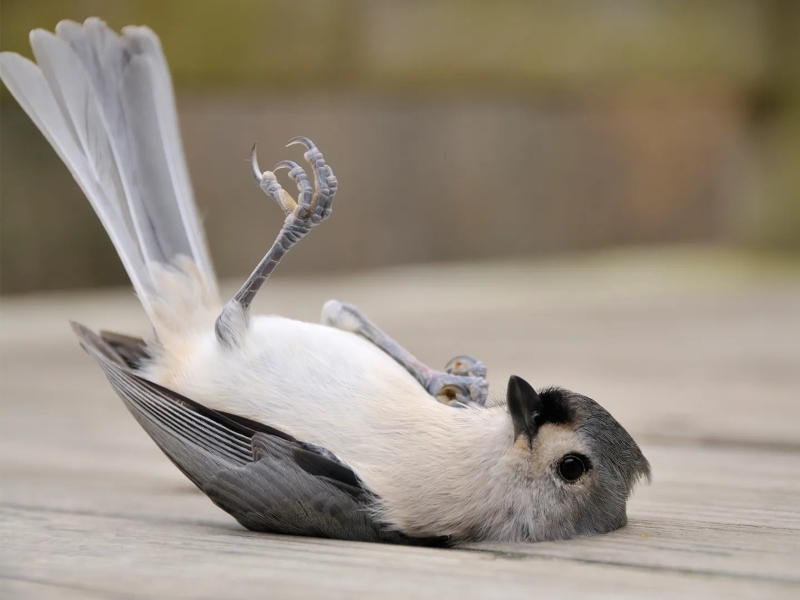
How Long Do Birds Stay Shocked?
As we’ve already established, shock is a life-threatening condition; if you suspect your bird is in shock, you should take it to the doctor immediately (and not wait for it to “get better”).
The duration of the shock is directly proportional to the severity of the bird’s condition. Hence the answer to this question depends on the bird’s current state of health. In some instances, the birds might only be in shock for a few minutes, but in others, it might linger for several hours or even several days.
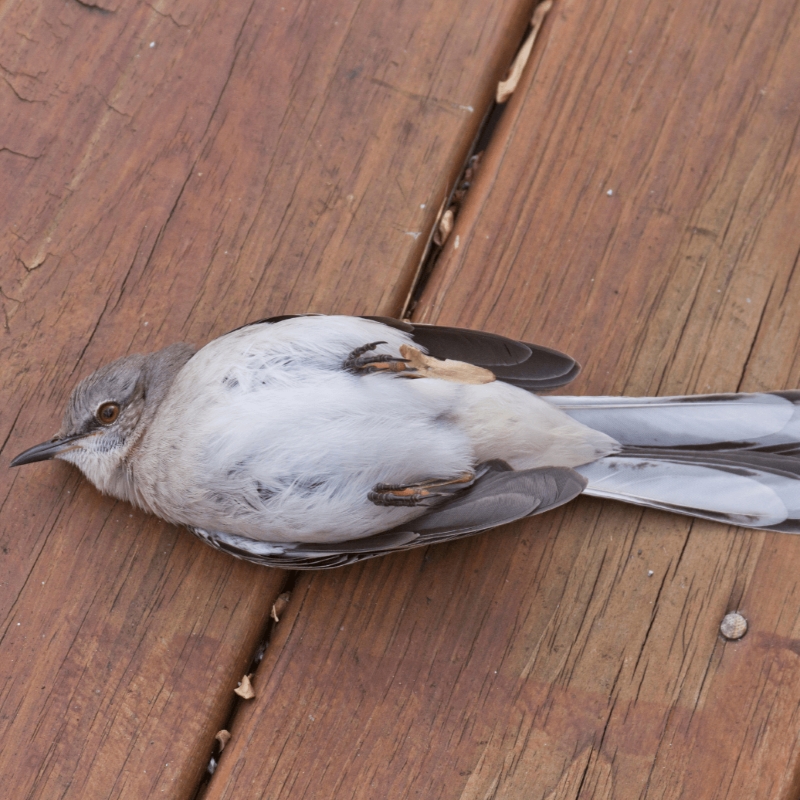
As the owner, you should watch for any changes in your bird’s health. If your bird isn’t getting better or is worsening, it’s time to visit the vet.
How To Care For A Bird That Is In Shock
Whether the bird is domesticated or wild, you must act quickly to save it if it is in shock. But the hard part comes after you’ve saved it. You must help it get better. There’s a chance that getting better will take some time. Nonetheless, you can take the following measures immediately to speed up a startled bird’s recovery.
- You should quickly check the bird’s breathing. Help it breathe via its beak if it has stopped breathing or is breathing slowly.
- Next, search for wounds on the bird’s head, neck, and appendages. A small wound can be treated at home. Also, if the injury is severe, you should consult a vet and treat the bird as directed.
- The bird must be kept in a quiet, stable, room-temperature environment. You can put it on a soft cloth and let it rest. This is especially important if the bird won’t move but is alive, as it may indicate internal injuries or severe stress.
- Once the bird has recovered from the shock, you can attempt feeding it again. No coercion is required. Put some food and water in a bowl and set it before it.
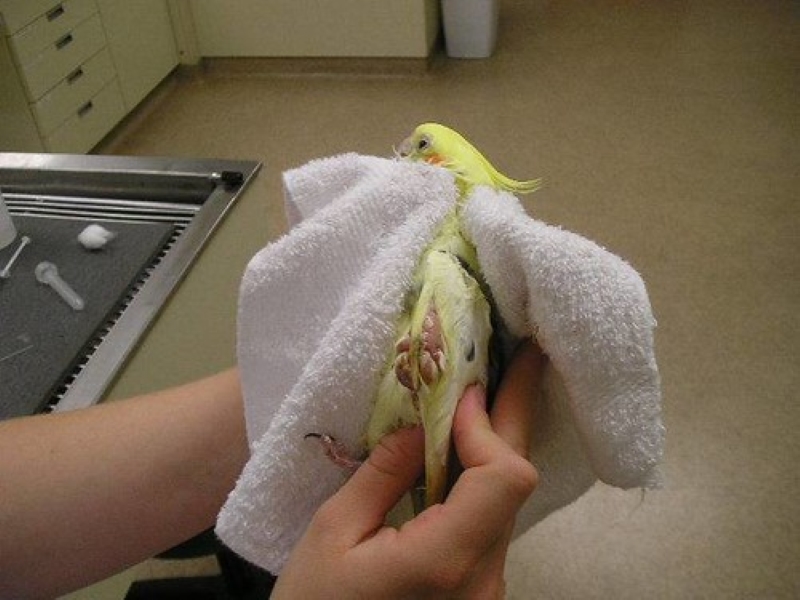
Keeping Birds From Getting Shocked
The best way to stop birds from going into shock is to be aware of the factors that can bring it on and take precautions to avoid those situations. You can assist in preventing shock in birds by doing several things, including the following:
- Creating a secure space for your bird will make it less likely to suffer injuries.
- Inspecting your bird frequently for signs of illness or injury.
- Providing the right amount of water and food for your bird.
- Avoiding being subjected to temperatures that are too high or too low (hot or cold).
- Recognizing the early warning signals of shock can allow you to take immediate action if required.
Canvas Personalized strongly advise you to be aware of probable causes of shock in birds and take measures to avoid them, but as you can see, there are a few basic things you can do to help prevent a bird in shock symptoms. Doing so will aid in maintaining the well-being of your feathered pal.
Shock is a major concern that might prove lethal for your bird. Be prepared to professional help promptly by learning the bird in shock symptoms. Shock treatment will vary according to the level and reason, but learning how to care for a shocked bird as soon as possible is essential. Thanks for reading this article by Canvas Personalized! We hope you have gained insight into the causes and remedies for bird shock. To help keep your bird safe, remember that awareness and avoidance of probable causes are key.










